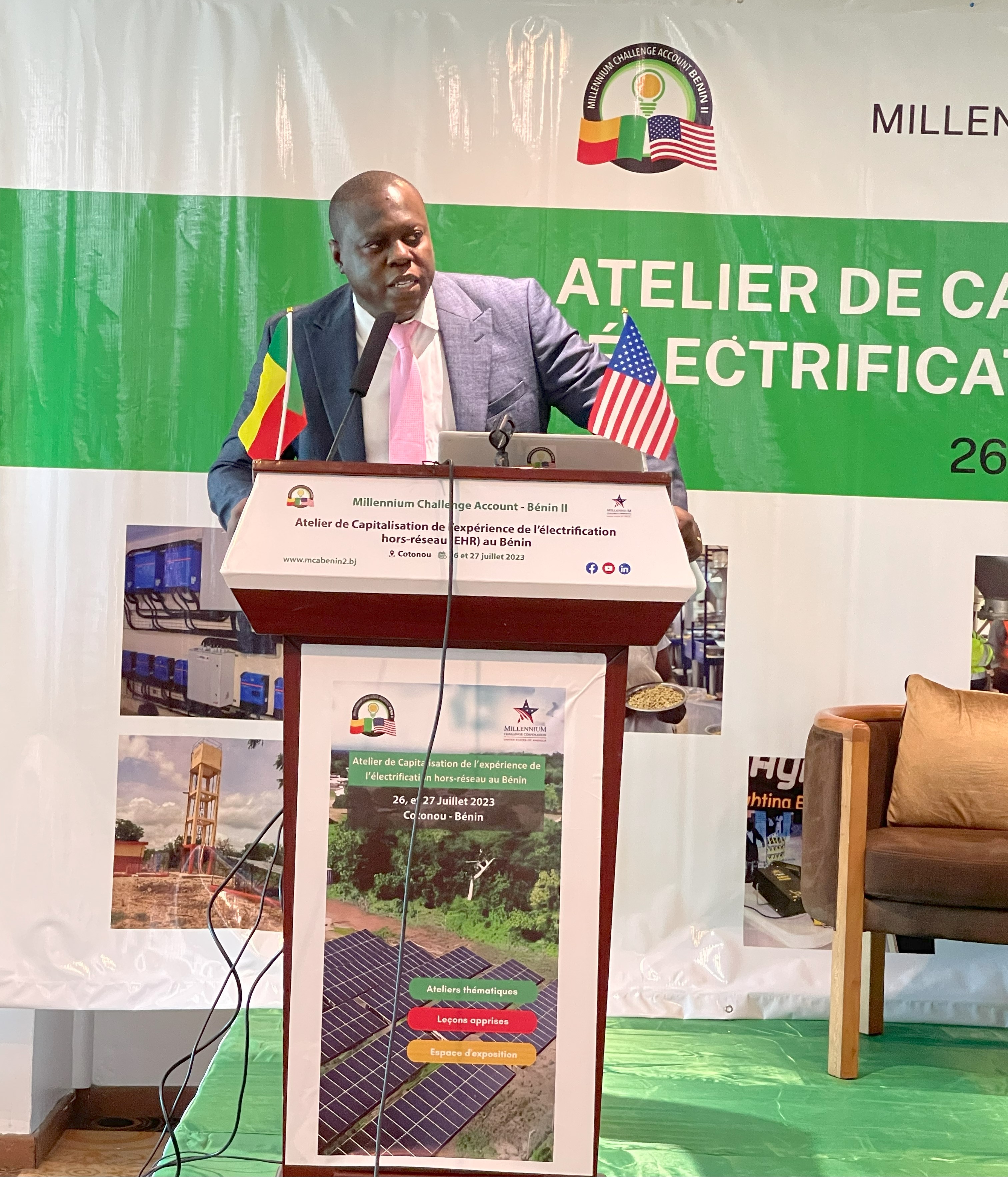Powering progress: Charlemagne Fandohan's journey across Benin's renewable energy landscape

Learn more about the objectives and achievements of the Off-Grid Clean Energy Facility (OCEF) on the project page.
When we first spoke with Charlemagne over five years ago, his charisma, flair for networking and positive attitude stood out. And it seems these characteristics have served him well as he has gone from working with NIRAS as the company’s representative in Benin to deputy project manager and most recently Team Leader of the Off-Grid Clean Energy Facility (OCEF).
“After the previous team leader stepped down in 2020, NIRAS proposed three options—there was one guy from Rwanda, one from Senegal, and me,” Charlemagne says. “The client chose me over the others who had slightly more experience because, from what I heard, they didn’t want to hire anyone from abroad who doesn’t understand the energy landscape in Benin.”
Charlemagne’s work with GIZ in the past had made him a familiar face in the off-grid renewable energy market in his home country. Most of the key actors in the field already knew and had good relations with him, so it was only natural that he was the favoured choice. “They wanted someone they could have confidence in, someone they can discuss with easily,” he continues.

Upon taking the role of Team Leader, Charlemagne and the project team were faced with a daunting set of issues. First among these was the financing scheme under which the project was operating.
“Result-based financing means that promoters [fund recipients/project owners] must achieve milestones before we provide them funds. And to achieve these milestones they need to mobilise the money some other way because they don’t receive any at the start,” Charlemagne explains.
According to him, many of the promoters were struggling to find the not-insignificant funds needed to kickstart their projects, many of which involved the construction of mini-grids and distribution of solar kits to serve the off-grid energy community. Under Charlemagne’s leadership, OCEF changed the initial milestones to be more affordable for promoters so they could enter the funding cycle more easily. The team set aside a starting fund comprising roughly 15% of the total budget to help get things moving as soon as the promoters succeeded in signing a concession agreement with the national authorities. Charlemagne believes this change contributed greatly to the success of the project down the line.
Another challenge project promoters and consequently OCEF faced was that national authorities were skeptical about the viability of the price models for their off-grid renewable energy offerings and the ability of clients in rural areas to pay for them. OCEF worked with the promoters to review their business plans and prices to ensure they were accurate to bolster their case and convince the authorities.
Perhaps the biggest challenge was securing sites to build the plants for the power mini-grids. The authorities had provided a list of construction sites, but over a few months things had changed, and a number of these became unavailable. This was frustrating to many promoters who had invested money identifying and securing the sites. Charlemagne and his team provided support to the promoters in coordinating with authorities to find new sites that they could use.
With the OCEF project wrapping up at the end of 2023, Charlemagne shares a number of wins of which he is particularly proud.
“We didn’t only set up mini-grids during this project!” he says. “For example, we provided access to water through solar pumps to at least 45 villages. We also improved access to healthcare in 5 villages with solar fridges in health centres, and we installed solar streetlights.”
Overall, the project has helped over 42,000 households in rural areas of Benin gain access to clean electricity. At present there are eight solar mini-grids in operation, but after the project concludes Charlemagne estimates that over fifty more will soon be in operation.
“It has not been a simple process, but our objective was to overcome all difficulties and provide the necessary funds to promoters so that even after the end of the project they can continue providing rural populations with access to electricity,” Charlemagne says. “And that is what we have done. We can say that OCEF has been a real success.”
A project like OCEF is a huge endeavour and, with it’s ending, Charlemagne is looking forward to a bit of time to rest, but keen to take on another big challenge.
“Right now I’m a short-term consultant for a small project involving improved cookstoves and waiting to hear about another possible opportunity.”
Looking back on his journey with OCEF, Charlemagne feels satisfied with the work he has done.
“It’s been a very exciting challenge to work with OCEF these last six and a half years,” he says. “I’ve met very interesting, smart and joyful people who made me happy to work with NIRAS. And I’m happy I’ve succeeded in managing the OCEF project until the end.”
Read more about the OCEF and key lessons learned here.
